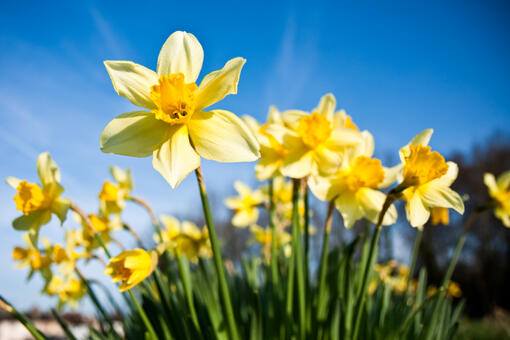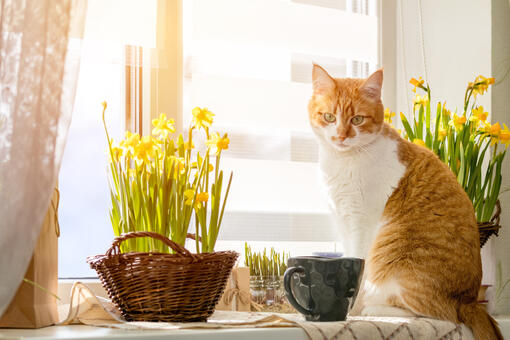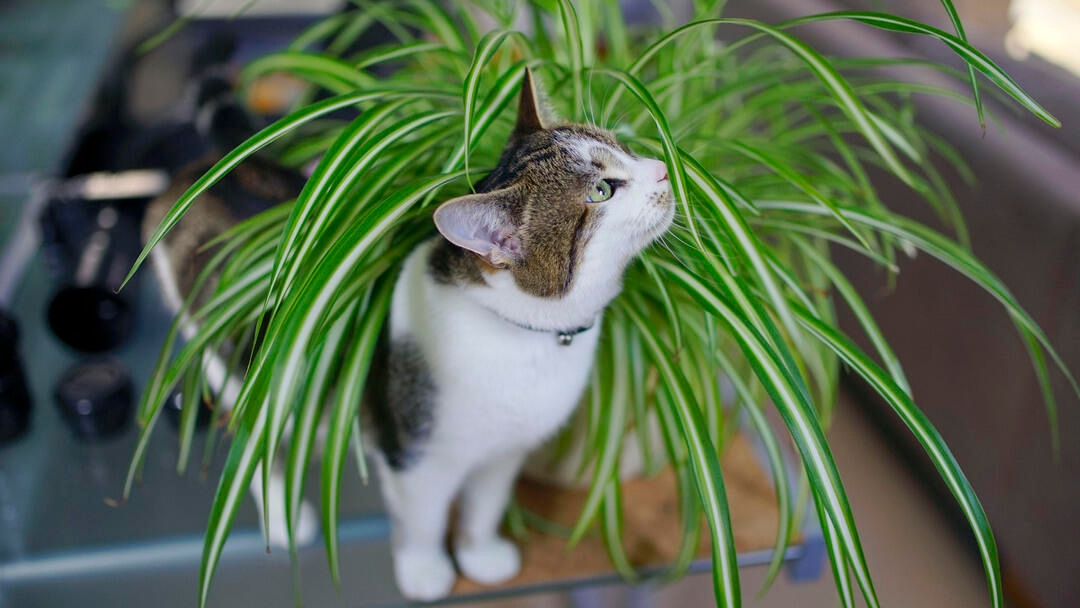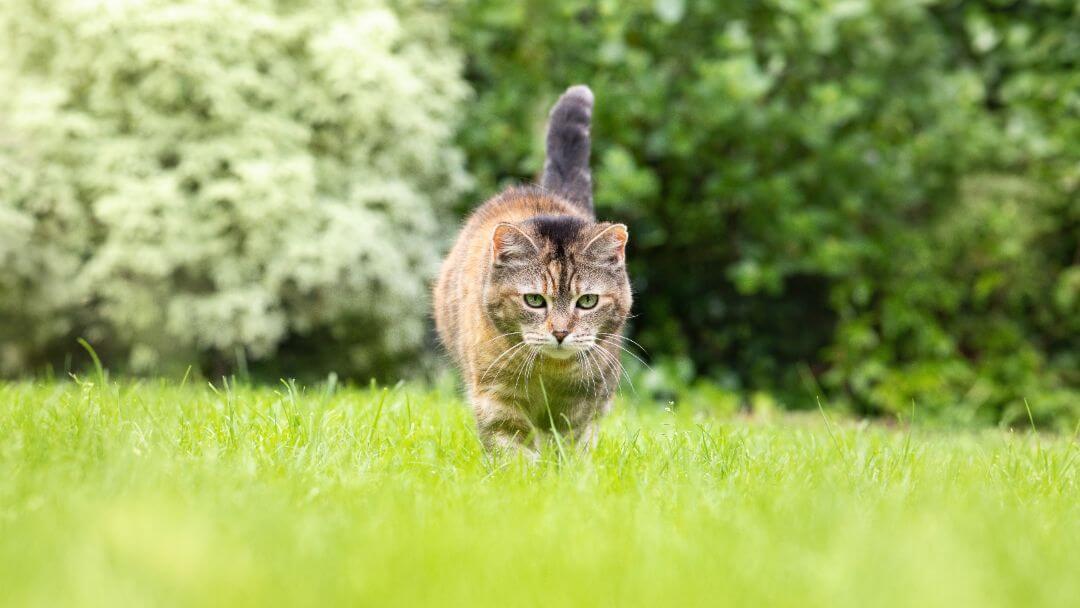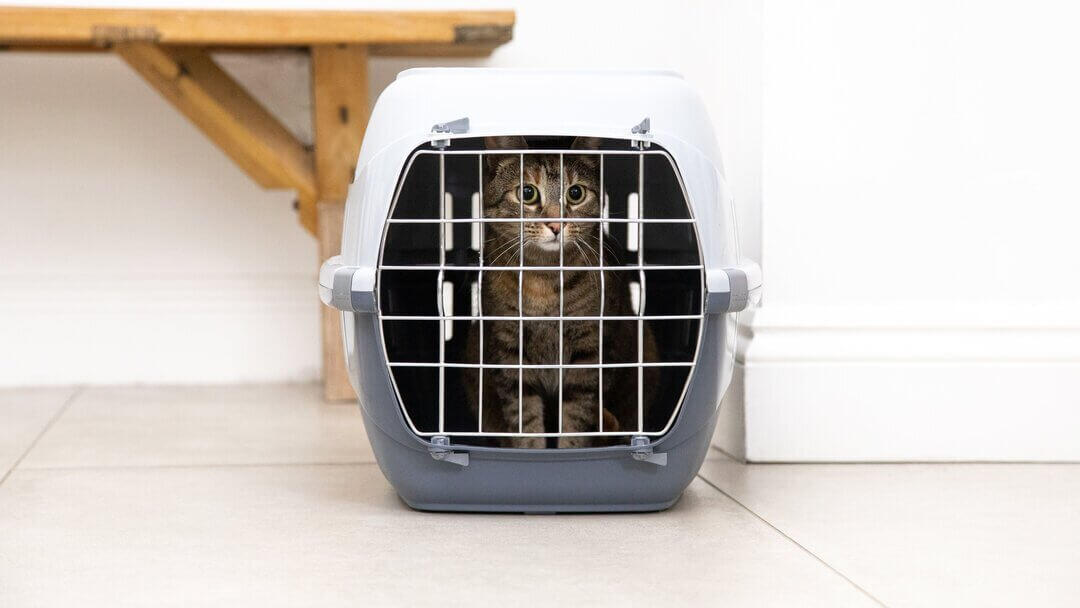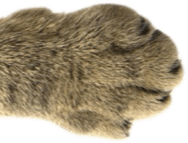
Cats are curious creatures who love to get into stuff. If your feline loves to explore the outdoors, you might be thinking about which poisonous plants cats should avoid and how you can help them if they come into contact with one. Come spring time, you might be wondering ‘are daffodils poisonous to cats?’ Carry on reading to find out and discover how you can help your feline if they end up ingesting them.
Are daffodils poisonous to cats?
The short answer is yes. The whole plant is toxic, especially the bulb. As a part of the Amaryllidaceae family, daffodils are poisonous to cats, though rarely fatal. If your cat ingests any part of the plant, they can experience some level of toxicity. Though there are some plants that are non-toxic to cats, daffodils are not one of them, so make sure to call and consult your vet if you suspect this has happened.
Signs of daffodil poisoning in cats
If your cat has consumed any part of a daffodil, it’s important to call your vet ideally before symptoms start to show. Like with most toxic plants, a cat’s body will react negatively to the toxins. To know if your cat has ingested daffodil, here are some signs to look out for:
- Shivering
- Decreased blood pressure
- Seizures
- Diarrhoea
- Excessive drooling
- Cat vomiting
- Nausea
- Tissue irritation
- Rapid heart rate
- Stomach pain
- Laboured breathing
- Heart arrhythmia.
As you can see the symptoms of daffodil poisoning in cats is an extensive list, making it important to keep your cat away from this plant to make sure they stay safe. Though it’s not fatal, it can cause a lot of upset and unnecessary suffering.
What do I do if my cat has eaten a daffodil?
We always recommend calling your vet first as they will tell you the best course of action. They might tell you to remove any of the plant that you can see from your cat’s mouth or fur. This is to stop them from consuming anymore possible toxins. Your vet could also ask how much and what part of the daffodil has been consumed in order to see if they need treatment and if so, what kind of treatment.
Depending on the amount ingested, treatment could be required (which is why it’s important to call your vet). Your vet could ask you to bring in a sample or snap a picture of the exact plant to determine the level of toxicity. This way, your feline can be treated to the best of their ability.
Treatment for daffodil poisoning in cats
Always seek a vet’s advice. If your vet advises you and your feline friend to go in for a check-up or treatment, this is what you could expect:
Activated charcoal for daffodil poisoning in cats
Your vet may use this to absorb and remove the toxins from the daffodil. This is commonly used for ingested plant toxins in animals.
Medication for daffodil poisoning in cats
Your vet may use medication to induce vomiting in cats. This is to help remove the toxins from the body.
IV fluids for plant poisoning in cats
After vomiting, (either induced or natural) your cat could be dehydrated – especially if they’ve vomited a lot. For this, your vet could administer intravenous fluids to combat it.
Ways to keep cats away from daffodils
Now that we’ve answered ‘are daffodils poisonous to cats’, you could be wondering how to keep your cat away from poisonous plants. We do recommend not having highly poisonous plants in your home or garden to avoid any accidents. If you do find plants, like daffodils, in your home, here are a few ways to try and keep your cat away:
- Cats don’t typically like citrus. Placing orange or lemon peels by plants can help
- Place indoor plants in a glass terrarium – this casing can save your cat and still looks great
- Compromise! Replace poisonous plants with cat-safe plants like catnip or lemon balm
- You can choose to remove them – ensuring the area is pruned so bulbs, leaves and petals are completely gone to avoid ingestion
Now that you know about toxic plants for cats, why not keep your feline even more safe by finding out about harmful foods for cats?

